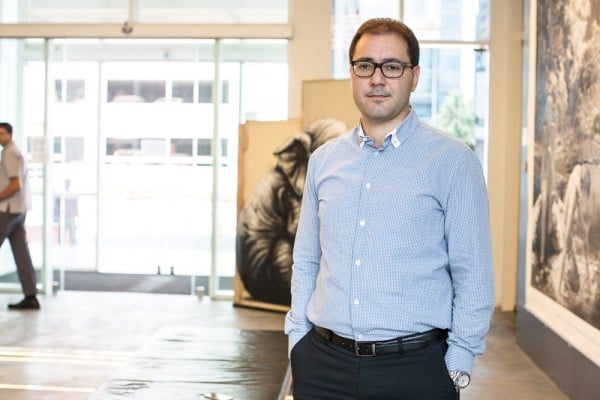
In the 14 months since Omnicom decided to launch its research arm Hall & Partners in the Middle East, the demand for effectiveness and return on investment (ROI) has hit agencies twofold. During nearly two years of cheap oil, earth-scorching budget cuts have left regional agencies desperately trying to prove their value to increasingly cynical clients. In Campaign’s final edition of 2015, Omnicom Media Group’s Elie Khouri predicted that this year would be when experiential marketing and the sophisticated use of data and insights begin to shine through the Middle East’s advertising landscape .
However, not everybody seems to have grasped the ‘sophisticated’ aspect of this if some of region’s work is anything to go by, says Ziad Skaff, managing director of H&P. “It keeps happening,” he says, contemplating some of worst cases. “Not to pinpoint any specific examples, but you will always find clients rushing into investments, be it in communication or anything else, for the simple idea of being ‘out there’ or competing with anyone else or being first. They might get away with it sometimes, but the majority of the time it doesn’t really come to their benefit. This is really money down the drain.”
Having headed up OMG’s research and insights division for eight years prior to joining H&P, Skaff has witnessed first-hand – and arguably had a hand in building – the industry’s transformation from interruptive marketing into predictive. Naturally this shift has sat alongside the region’s – in particular the UAE’s and Saudi Arabia’s – rapid digitisation. For H&P, this means traditional methods of acquiring data, such as phone calls and face-to-face interviews, now sit increasingly alongside web and mobile data.
As Facebook-owned messaging giant WhatsApp becomes the latest platform to join the data-accumulation bandwagon, announcing that it will begin sharing analytics with its parent company, it only seems likely this space will continue feeding cascades of ad-targeting potential to the industry, whether people like it or not.
Skaff mentions GPS-tracking experiments as part of the more advanced technologies increasingly employed by H&P, alongside eye-tracking and neuroscience, to test out human behaviour.
So how does a company like H&P even begin to process such sheer quantities of data to find material that has value? The answer lies in ‘being picky’ and using research that amounts to more than ‘just a number of clicks’, says Skaff.
“We’re more into custom-made and planned studies than what’s called ‘big data’,” he says. “If we find there are gaps we need to complement from the wider pool, then we do. But we’re very picky as to what kind of data we acquire, what kind of data we do, the sources we work with and what kind of data we can integrate with ours – data that really makes sense to the clients and that really delivers on their objectives. It’s about bridging data from left, right and centre, and pulling it all together.”
This final ‘pulling together’ comes from the analytics, the ‘cream’ on top of the ‘data cake’ as Skaff calls it. “Algorithms are the cherry on top of the pie; after you’ve built this whole data cake of research you just bring in analytics on top and see how they can dig deeper and how they can bridge different variables and really deliver the cream to the clients – the really actionable findings,” he says.
Yet while Dubai government and its entities are among the biggest pioneers of technology-led research in the Middle East, many companies – in particular small, home-grown businesses – have failed to follow suit when it comes to investing their budgets, says Skaff. And strategy without research and planning is wasted.
“I believe every client should set a yearly target of investment in measurement, research and ROI, because this could definitely save them big buckets at the end of the year,” he says. “This should become part of any company operating here, as it is everywhere else. The long-term purpose of any client is to optimise their spend, be it on marketing or communication, and reduce their spend. So if you’re able to reduce your investment by making sure the benefits are increasing at the same time then you’re not losing market share.
“On the contrary: you are optimising your investments; every penny you’re spending, you’re getting more in return and I don’t see how clients wouldn’t like that.”









